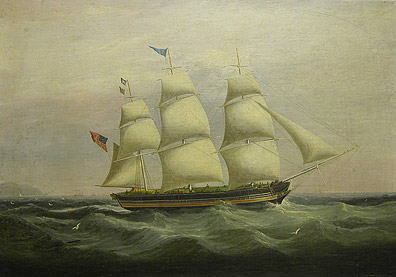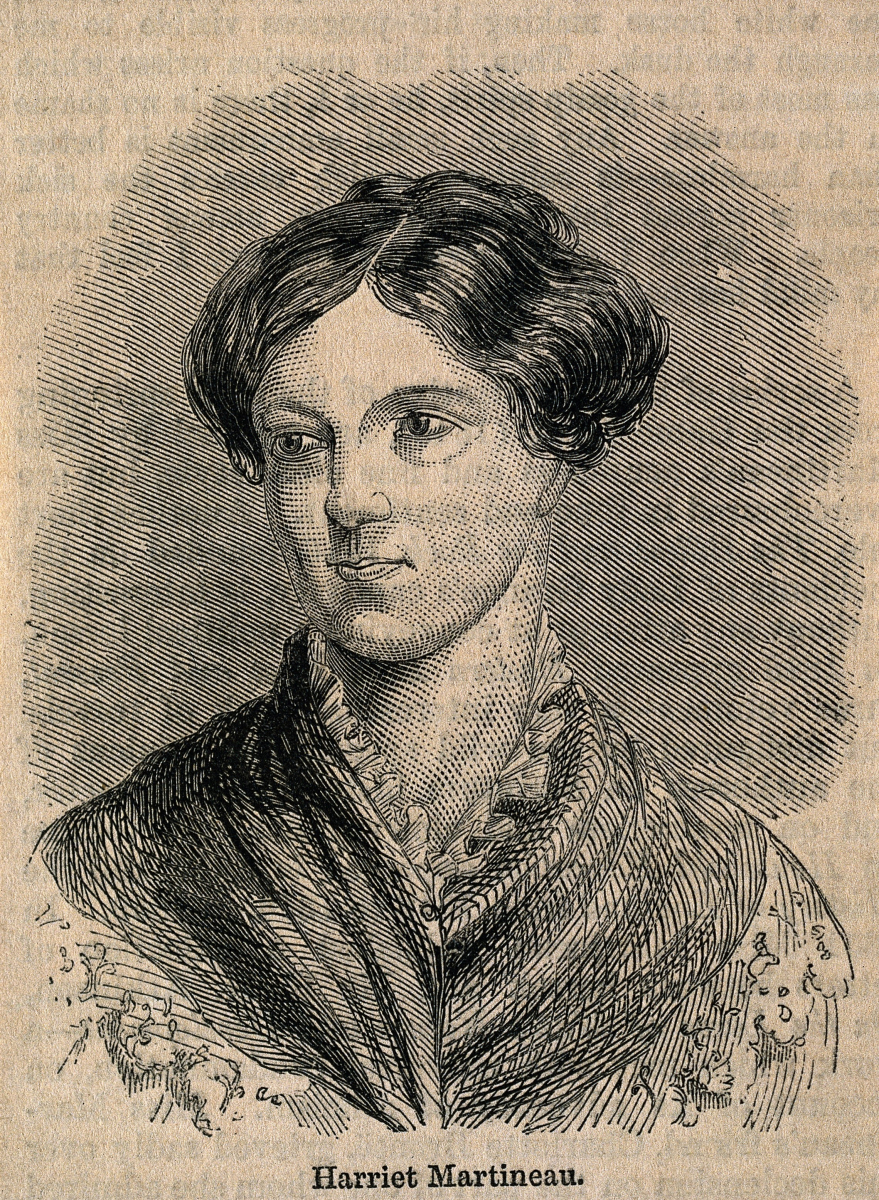

 In the early 19th century, packet ships were the way to travel across the Atlantic.
In the early 19th century, packet ships were the way to travel across the Atlantic.
The British navy had begun sending regularly scheduled ships back and forth to North America in 1756. These carried packets (hence the name) of official government dispatches and personnel, and an occasional nonmilitary passenger. But there was no schedule for commercial ships. A sailing date might be advertised, and people could buy their tickets, but all that sailing date really meant was that the ship wouldn’t leave before then. If there wasn’t sufficient cargo to make the trip worth while, the captain would just wait.
Then in 1817 a group of merchants in New York, realizing that a regular schedule for shipping would be an enormous help to businesses, decided to set up a line of ships that would travel between New York and Liverpool, leaving on a fixed day every month.
(In The Earl Returns, the hero, Tom Wortham, Earl of Merton, proposes this idea to his American father-in-law.)
The first two packet ships in their Black Ball line set sail in January 1818, one from New York and one from Liverpool. Within two years, even those who had originally scoffed at the idea acknowledged that it was a remarkable success.
An arrival date for the journey could not be set, of course. These were sailing ships, at the mercy of wind and weather. However, the goal was 22 days eastbound, and 35 days westbound. Any captain who did better than that won a reward. During the first two years, the fastest time for the New York to Liverpool trip was 17 days, and the longest westbound trip was 48 days.
Since the Black Ball line was achieving such success, others joined in to try to improve on the speed and to provide more comfort, or luxury, for the passengers.
The first Black Ball ship had been 110 feet long. In 1823, the Canada was 132 feet long and boasted a dining cabin with mahogany tables (firmly bolted to the floor) and cabins with ground glass skylights. A year later, the York offered venetian blinds in the cabin doors to provide ventilation and Turkish carpets on the floors to deaden the noise.
This was still a far cry from the luxury we associate with the steamships of the Gilded Age. The cabins for the ten to twenty passengers were small, airless and dark. The beds were wooden bunks with little cushioning, often with a dip in the middle to keep the sleeper from rolling out when the ship tossed. It wasn’t until 1836 that the Dramatic Line, which named its ships after actors or playwrights, began putting cabins on the main deck where they could get more air and light and at the same time avoid the bilge odors.
The dramatic change came with the steamships in the second half of the century. These were four to five times the size of the packets and could carry 150-200 first class passengers plus another 1,000 in steerage.
Harriet Martineau, the English writer and social commentator, sailed on a packet ship to New York in 1834 to observe American  society. Since she was interested in just about everything, she did not suffer from boredom, the bane of many travellers, and enjoyed the trip. In her Retrospective of Western Travel (1838) she listed the usual complaints and her suggestions for dealing with them:
society. Since she was interested in just about everything, she did not suffer from boredom, the bane of many travellers, and enjoyed the trip. In her Retrospective of Western Travel (1838) she listed the usual complaints and her suggestions for dealing with them:
"I had heard so much at home of the annoyances on board ship, that I made a list of them at the time for the consolation of my friends at home, who were, I suspected, bestowing more compassion upon me than I had any title to. I find them noted down as follows:—
"Next to the sickness, an annoyance scarcely to be exaggerated while it lasts, there is, first, the damp clammy feel of everything you touch. Remedy, to wear gloves constantly, and clothes which are too bad to be spoiled. In this latter device nearly the whole company were so accomplished that it was hard to say who excelled.
"Next, want of room. The remedy for this is a tight, orderly putting away of everything; for which there is plenty of time.
"Thirdly, the candles flare, and look untidy from running down twice as fast as they burn. Remedy, to go out of the way of them; to the stern, for instance, where there are far better lights to be seen.
"Fourthly, the seats and beds are all as hard as boards: a grievance where one cannot always walk when one's limbs want resting with exercise. Remedy, patience. Perhaps air-cushions may be better still.
"Fifthly, warning is given to be careful in the use of water. Remedy, to bathe in seawater, and drink cider at dinner.
"Sixthly, the cider is apt to get low. Remedy, take to soda-water, ale, hock, or claret.
"Seventhly, the scraping of the deck sets one's teeth on edge. For this I know of no remedy but patience; for the deck must be scraped.
"Eighthly, the rattling, stamping, and clattering overhead when the sails are shifted in the night. Remedy, to go to sleep again.
"Ninthly, sour bread. Remedy, to eat biscuit instead.
"Tenthly, getting sunburnt. Remedy, not to look in the glass.
"These are all that I can allow from my own experience. Some people talk of danger, but I do not believe there is more than in travelling on land. Some have called a ship a prison so often, that the saying seems to have become current. But, in my idea, the evils of a prison are the being coerced by another person's will; the being disgraced; the being excluded from the face of nature; and the being debarred from society, employment, and exercise. None of these objections apply to a ship as a residence. As for the one point of resemblance, the being unable to walk a mile or more out and back again, of how many persons is this the voluntary choice, who were never either in a prison or a ship? I would never take the responsibility of recommending any elderly, or nervous, or untraveled persons to put themselves into a place which will not keep still, nor anything in it, for a month or six weeks, and from which they cannot get out; but I cannot think the confinement, by itself, anything to be much complained of."

Comments
This is such an interesting
This is such an interesting report, Lil. I love Miss Martineau's assessments! I don't think I would've wanted to sail on a packet, but I appreciate those who were willing to undertake the adventure.
My favorite is her remedy for
My favorite is her remedy for sunburn—"not to look in the glass"!
Post new comment